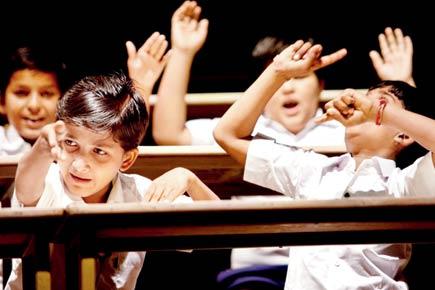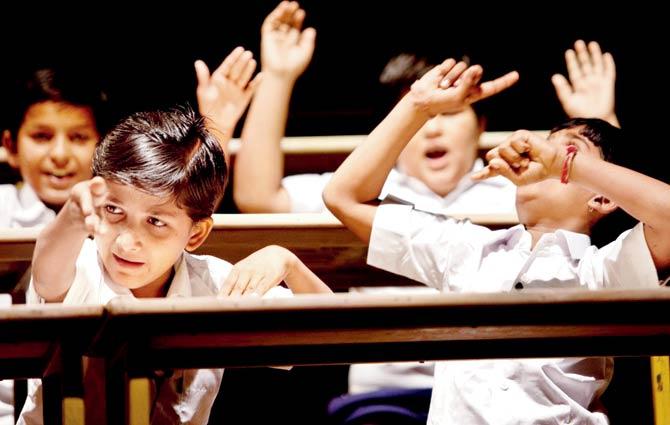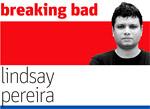The switch from redundant textbooks to Potter, Maus and Tintin in schools ushers in hope for imagination and scope for inquisitiveness

 Students in CISCEu00e2u0080u0088schools will now have JK Rowling’s Harry Potter series as part of their English Literature syllabus. File pic
Students in CISCEu00e2u0080u0088schools will now have JK Rowling’s Harry Potter series as part of their English Literature syllabus. File pic
ADVERTISEMENT
 One of the nicest things that happened last week — an increasing rarity in a country where awful occurences are now the norm — was the announcement that Council for the Indian School Certificate Examinations (CISCE) has decided to include JK Rowling’s Harry Potter series for junior and middle school students as part of its English Literature syllabus, starting from the academic year 2017-18.
One of the nicest things that happened last week — an increasing rarity in a country where awful occurences are now the norm — was the announcement that Council for the Indian School Certificate Examinations (CISCE) has decided to include JK Rowling’s Harry Potter series for junior and middle school students as part of its English Literature syllabus, starting from the academic year 2017-18.
I don’t particularly care for the series, but what made me smile was the inclusion of classics such as Asterix, Tintin and Art Spiegelman’s Maus, with Agatha Christie’s Poirot books, Satyajit Ray’s Feluda series, works of PG Wodehouse with autobiographies of Malala Yousafzai and Anne Frank.
For students from classes 3 to 8, I suppose, it will be accepted with a grimace or shrug — depending upon their individual reading habits. For older folk like me though, it brings forth memories of smuggling comic books into classes even as Iu00e2u0080u0088struggled with soliloquies and fostered a distinct dislike for the astonishingly large number of subjects taught by disinterested teachers from some poorly chosen textbooks. It’s probably why it took me a little over two decades to appreciate Shakespeare.
There is no word on whether other boards of education intend to adopt these titles, and I don’t suppose they will, considering the little to no importance accorded to education by our successive governments. Reason why ministers in charge of that portfolio, both in the state as well as the Centre, often seem unqualified to hold their respective respectable positions. It’s also why the Balbharti — the ubiquitous textbook that loomed large in schools during my time — was a disappointment on so many levels. I envy the student who can now walk into class and open a copy of Maus, a title that made its way to my bookshelf only in my late 20s.
Now, consider what so many other students across this country are force-fed annually. A BBC report examining textbooks across India recently found things that were truly horrifying, to put it mildly. A textbook for teenagers in Chhattisgarh, for instance, blamed rising unemployment levels post Independence on women working in various sectors. In 2012, a textbook referred to meat-eaters as dishonest people, who easily cheat, turn violent and commit sex crimes. You can Google the report.
A few years before that, textbooks in Rajasthan compared housewives to donkeys, while a social science textbook in Gujar, reportedly, printed Mahatma Gandhi's assassination date wrongly and taught students that Japan had launched a nuclear attack on the US during World War II. Lastly, in Maharashtra, a large numbers of students were taught about the importance of the ‘Sewage Canal’ because someone couldn’t figure out how to spell ‘Suez’.
Unfortunately, for children born in this country, our textbooks are political battlegrounds contents of which are often drawn up on the basis of personal prejudices, regional biases and the appeasement of certain groups or ideologies. Here, disseminating information that paints specific topics in a positive or negative light is the priority.
We aren’t encouraged to arrive at conclusions for ourselves; instead, these conclusions — on politics, history, geographical boundaries, even the way we approach the social sciences — are thrust upon us in our formative years so we can toe the line as and when we grow up. We aren’t encouraged to question anything, which is why our examination papers are marked on the basis of how far we deviate from the established line — reason why we are pulled up as adults for not doing things the way someone sitting in some government office somewhere believes that ought to be done.
I wish I had Guy Delisle’s work on my geography syllabus, Joe Sacco to help me understand politics and history, Craig Thompson or Daniel Clowes in my English class or the option of an entire year devoted only to Tolkien. I wish we had teachers who encouraged us to imagine, to question our textbooks, to agree to disagree without the fear of risking detention. I wish we didn’t have to hate some subjects simply because we weren’t taught those in a manner that appealed to us.
These days, students may not fully appreciate the gift they have been given with this announcement. They will though, someday. And, even if a handful of them convince their kids to read the same texts they are being asked to read today, this change in the syllabus will be a success.
When he isn’t ranting about all things Mumbai, Lindsay Pereira can be almost sweet. He tweets @lindsaypereira. Send your feedback to mailbag@mid-day.com
 Subscribe today by clicking the link and stay updated with the latest news!" Click here!
Subscribe today by clicking the link and stay updated with the latest news!" Click here!






